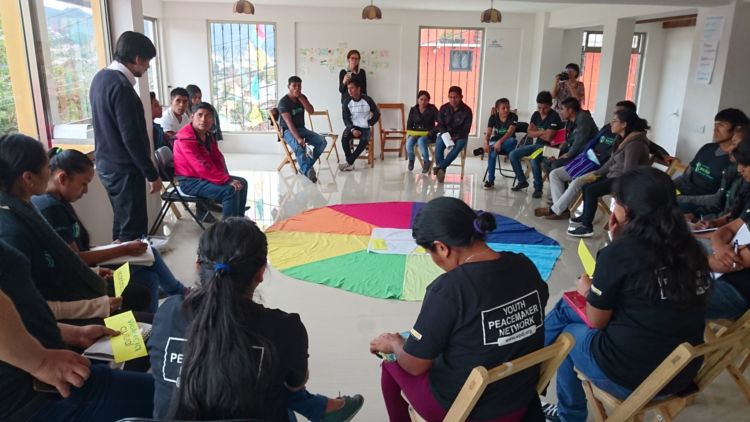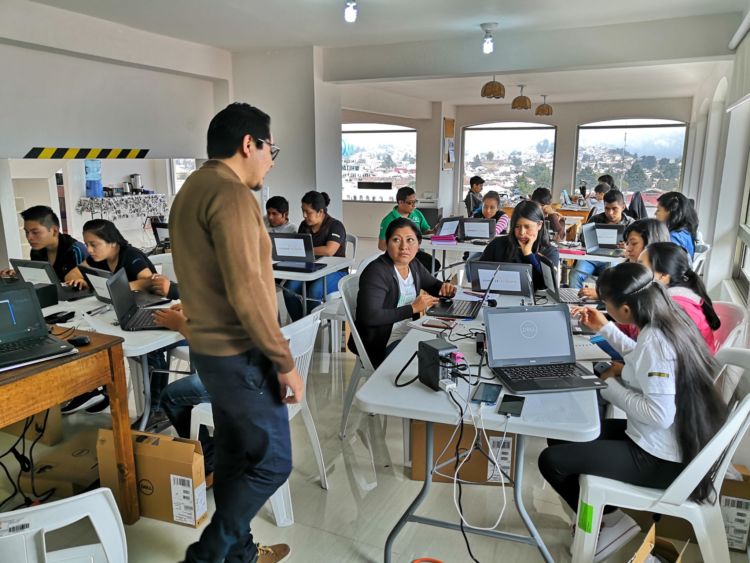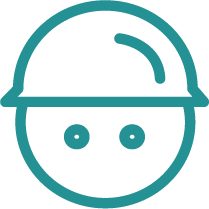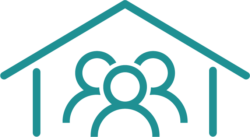Chiapas
 75%
75%
of the population in Chiapas lives in poverty
 35%
35%
of the population of Chiapas are indigenous peoples
25-34 year olds in Mexico do not complete their upper secondary education

Home to one of the largest indigenous populations in Mexico, the State of Chiapas has long been marked by the willingness of these groups to preserve their identity and autonomy. This was manifested in the Zapatista uprising of 1994, which succeeded in obtaining extended rights for indigenous people in Mexico. However, while Chiapas has been determined to retain its cultural distinctiveness within the larger Mexican society, it remains one of the poorest states in Mexico, with high poverty and illiteracy rates in most of the state’s municipalities. Experts have listed many additional challenges faced by the state’s population, including a lack of access to water and power. One challenge stands out, however: creating positive change in a way that respects local identities and claims to autonomy.
This is the kind of transformation that WPDI was created to address. The Youth Peacemaker Network’s approach is to empower and support young people with the skills they need to become transformative insiders. Indeed, local young people are best positioned to bring such change because they are insiders within their communities and at the same time they can bring fresh and innovative perspectives to many situations that others would perceive as entrenched and fixated. We offer the tools: trainings and grants that enable them to mobilize on their own. We want them to be in the driver’s seat and steer change. In a region where, for instance, many citizens speak indigenous languages, our youths, as natives, can translate universal concepts of peace and non-violence into activities tailored to local situations and challenges. They know how to address the needs and expectations of their communities through actions and initiatives that will spark positive, lasting change.

Through our Community Learning Center based in San Cristóbal de las Casas, we strive to reach youth populations in their environment, offering free access to connectivity, library services, and various courses in Conflict Resolution Education as well as vocational trainings in Information & Communications Technology and Business & Entrepreneurship. The Community Learning Center is also home to two key programs, Cinema for Peace, which teaches values of peace through movies and reflective workshops, and the Business Bootcamp, our incubator for local small businesses.
Entrepreneurship is indeed a growing dimension of our work with multiple benefits felt by the community through services and jobs creation. One such project has helped train and support indigenous families in farming activities. More than 100 families – 600 people total – have started growing staple foods and selling a surplus in local markets. Fighting poverty and fostering socio-economic inclusion are essential conditions to make peace happen.
Key numbers to understand our impact in Chiapas:
 30
30
young leaders training 240 local youth
 15
15
youth-led income-generating projects
 1
1
Community Learning Center in San Cristóbal de las Casas
 30
30
SMEs incubated through the Business Boot Camp
 120
120
community dialogues
students will learn peace directly in the classroom through our Conflict Resolution Education program in schools